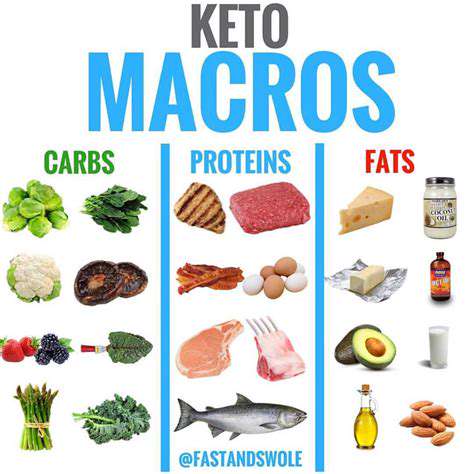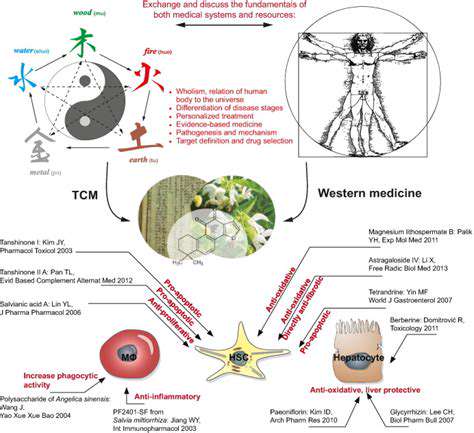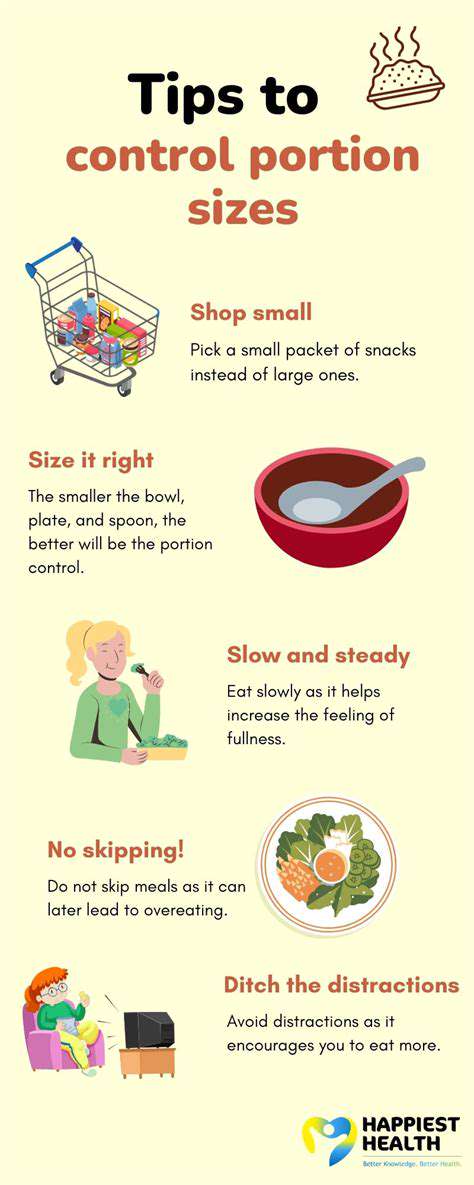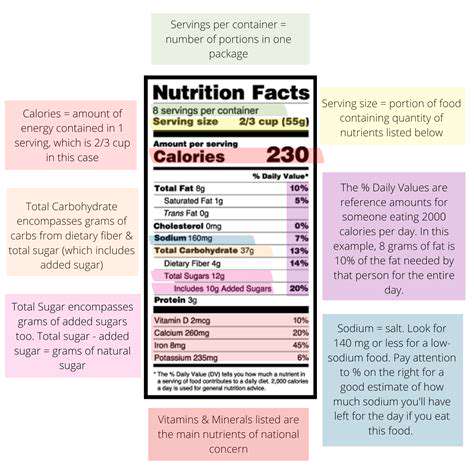Whole30 vs. Keto: Which Program Suits You?
Whole30: A Focus on Eliminating Processed Foods
The Whole30 diet, while popular for its emphasis on whole, unprocessed foods, takes a restrictive approach. It mandates the complete elimination of grains, legumes, dairy, sugar, and alcohol for 30 days. This drastic approach aims to reset the digestive system and potentially improve overall health and well-being by removing potential inflammatory foods. Advocates often report feeling better physically and mentally during the challenge, attributing this to a heightened awareness of their dietary intake and the elimination of processed ingredients. This elimination phase is a critical part of the program, aiming to help individuals identify their individual triggers and create a better understanding of what their bodies respond to positively.
Proponents highlight the potential for improved energy levels, clearer skin, and reduced digestive issues as a result of this elimination period. However, the strict nature of the Whole30 diet can be challenging for some individuals, particularly those with complex dietary needs or preferences. It's important to note that the long-term sustainability and overall nutritional completeness of the Whole30 approach should be considered alongside the initial benefits.
Keto: A High-Fat, Moderate-Protein Approach
The ketogenic, or keto, diet, on the other hand, focuses on significantly increasing fat intake while drastically reducing carbohydrate consumption. This shift in macronutrient ratios forces the body into a metabolic state called ketosis, where it begins burning fat for fuel instead of glucose. This process can lead to rapid weight loss, and for some, a feeling of increased energy. The emphasis on healthy fats, such as avocados, nuts, and olive oil, is a key component of the keto diet, alongside moderate protein intake. This approach is often viewed as a more sustainable method for long-term weight management, given its focus on healthy fats and the potential for improved blood sugar control in some individuals.
While keto often yields impressive results in terms of weight loss, it requires careful attention to portion sizes and the types of fats consumed. The potential for nutritional deficiencies, particularly in micronutrients commonly found in grains and legumes, needs to be addressed with supplementation or careful planning. Furthermore, the high-fat nature of the keto diet may not be suitable for everyone and could potentially lead to issues like constipation for some individuals. Careful consideration of individual needs and potential side effects is essential when exploring this dietary approach.
Whole30: A Focus on Eliminating Processed Foods and Added Sugars
Understanding the Whole30 Philosophy
The Whole30 approach emphasizes eliminating processed foods, added sugars, and other ingredients that may negatively impact health and well-being. This includes a wide range of items, from packaged snacks and sugary drinks to many condiments and even some common food additives. The core principle is to focus on whole, unprocessed foods, allowing the body to reset and potentially experience improved digestion, energy levels, and overall health. This initial phase of elimination is crucial to the program's effectiveness and can be considered a sort of reset button for the digestive system.
The elimination period isn't merely about diet; it's about mindful consumption. It encourages participants to pay more attention to the ingredients in their food and to consider how these ingredients might be affecting their bodies. This heightened awareness extends beyond the food itself, potentially influencing lifestyle choices and overall well-being.
Key Components of the Whole30 Diet
A defining characteristic of the Whole30 program is its strict adherence to a list of permitted and prohibited foods. This list is designed to help individuals identify and eliminate problematic ingredients. The focus is on whole, unprocessed foods like fruits, vegetables, lean proteins, and healthy fats. This emphasizes a nutritional approach that prioritizes the natural state of foods, avoiding refined grains, legumes, dairy, and added sugars. This detailed approach to food selection provides a clear framework for understanding the program's core principles and dietary guidelines.
Beyond the core food restrictions, the Whole30 program often includes considerations for sweeteners, alcohol, and even specific types of oils and fats. This comprehensive approach aims to create a holistic reset that encompasses not just the food consumed but also the overall lifestyle surrounding eating habits. It encourages mindful eating and the exploration of how different foods affect individual well-being.
Potential Benefits and Considerations
Proponents of the Whole30 often highlight potential benefits like improved digestion, increased energy levels, and a clearer understanding of how different foods affect individual bodies. This can be a powerful tool for recognizing sensitivities and making informed choices about dietary habits. However, like any dietary approach, it's essential to approach it with careful consideration. The strict nature of the program can be challenging for some individuals, and it's crucial to consult with a healthcare professional before making significant dietary changes, particularly if there are underlying health conditions.
Another key consideration is the potential for nutrient deficiencies if not carefully planned. The elimination of entire food groups necessitates an awareness of potential nutrient gaps and a proactive approach to ensuring adequate intake of essential vitamins and minerals. The Whole30 program may not be sustainable for everyone long-term, and it's essential to consider whether the benefits outweigh the limitations and potential challenges.
Careful planning and education are paramount for a successful and safe Whole30 experience. It's important to prioritize a balanced approach that considers individual needs and potential health concerns.
Keto: A High-Fat, Moderate-Protein, Low-Carbohydrate Diet

Understanding the Ketogenic Diet
The ketogenic diet, often abbreviated as keto, is a high-fat, moderate-protein, and very-low-carbohydrate eating plan. It works by forcing your body into a metabolic state called ketosis. This metabolic shift leads to the production of ketones, which your body can use as an alternative fuel source instead of glucose from carbohydrates. This shift can potentially lead to weight loss for some individuals.
Essentially, the ketogenic diet drastically limits carbohydrate intake, forcing the body to burn stored fat for energy. This process is different from the typical metabolic pathways that utilize glucose. While the diet has gained popularity for its potential weight-loss benefits, it's important to consult with a healthcare professional before starting any new diet plan.
Key Macronutrient Ratios
A crucial aspect of the keto diet is the strict adherence to specific macronutrient ratios. Generally, a keto diet emphasizes a high percentage of fat intake, typically 70-80%, moderate protein intake, usually 15-20%, and a very low carbohydrate intake, typically below 5%. These ratios are essential for inducing ketosis and maintaining the metabolic state required for the diet to function effectively. Understanding these proportions is vital for successful implementation.
The precise macronutrient ratios can vary depending on individual needs and goals. However, the underlying principle remains consistent: prioritizing fat, while minimizing carbohydrates and moderating protein. This careful balance is vital for optimizing the benefits of the diet and avoiding potential side effects.
Potential Benefits and Drawbacks
Proponents of the ketogenic diet often highlight potential benefits such as weight loss, improved blood sugar control, and reduced seizures in some individuals with epilepsy. These potential advantages stem from the unique metabolic changes the diet induces. However, the keto diet is not a one-size-fits-all solution, and individual responses may vary significantly.
Potential drawbacks include nutrient deficiencies if not carefully planned, constipation, and potential side effects like keto flu. It's crucial to carefully monitor your diet and consult with healthcare professionals to mitigate these risks and maximize potential benefits. Careful planning and monitoring are essential.
Foods Allowed and Restricted
The ketogenic diet allows a wide array of nutritious foods, primarily focusing on healthy fats, such as avocados, nuts, and fatty fish. It also permits moderate amounts of certain protein sources, like lean meats and poultry. Vegetables with low carbohydrate content are also encouraged. Understanding the carbohydrate content of various foods is crucial for adhering to the low-carb principles of the ketogenic diet.
Foods typically restricted include grains, starchy vegetables, most fruits, and sugary foods. A thorough understanding of the carbohydrate content in different food items is essential for maintaining the necessary low-carb composition of the diet. This careful selection process is often challenging for some individuals.
Important Considerations and Cautions
Before embarking on any ketogenic diet, it's crucial to consult with a registered dietitian or healthcare professional. They can help you create a personalized plan that considers your individual needs and health conditions. Properly managing the keto diet requires careful consideration of potential side effects and long-term effects.
Monitoring your ketone levels and adjusting your diet as needed are important for achieving optimal results. It's also important to pay attention to your body's signals and adjust the plan as necessary. It's important to remember that individual results can vary, and consistency is key to success.
Choosing the Right Program for You
Understanding the Core Principles
Both Whole30 and Ketogenic diets emphasize dietary restrictions, but they differ significantly in their approach. Whole30 focuses on eliminating processed foods, added sugars, and alcohol for 30 days, emphasizing whole, unprocessed foods and promoting overall dietary health. This approach aims to reset your relationship with food and encourage a healthier lifestyle beyond the 30-day period.
Keto, on the other hand, restricts carbohydrates drastically, forcing the body into a metabolic state called ketosis. This state utilizes fat as the primary fuel source, leading to rapid weight loss for many. The core principle of Keto is to significantly limit carbohydrates, aiming for a specific ratio of macronutrients (carbohydrates, protein, and fat).
Evaluating Your Dietary Needs
Consider your current dietary habits and health conditions when choosing between Whole30 and Keto. If you're seeking a comprehensive dietary overhaul that addresses potential sensitivities and encourages mindful eating, Whole30 might be a good fit. It emphasizes fresh, whole foods and encourages a more intuitive approach to eating.
Conversely, if your primary goal is rapid weight loss and you're comfortable with significant dietary restrictions, Keto could be more effective. However, it's crucial to consult with your doctor before undertaking a drastic change in your diet, especially if you have underlying health conditions.
Addressing Weight Management Goals
Both diets can lead to weight loss, but the mechanisms and speed of the process differ. Whole30 often promotes gradual, sustainable weight loss by fostering healthier eating habits. It's not necessarily about extreme short-term results but rather about long-term lifestyle changes.
Keto, due to its significant carbohydrate reduction, can often yield rapid weight loss in the initial weeks. However, this can sometimes lead to a plateau later on, requiring adjustments to the diet to maintain the results. This should be considered alongside potential long-term health implications.
Considering Potential Health Implications
Whole30 is generally considered a more approachable approach to dietary change, as it doesn't restrict all foods in the same way as Keto. It emphasizes whole foods and can be easier to maintain long-term.
Keto, with its extreme carbohydrate reduction, can potentially lead to nutrient deficiencies if not carefully managed. It's crucial to ensure adequate intake of essential vitamins and minerals when following a Keto diet. It's highly recommended to consult with a registered dietitian or nutritionist to ensure a balanced approach.
Examining Personal Preferences
Your personal preferences and lifestyle play a significant role in determining the best program for you. If you enjoy cooking and experimenting with fresh ingredients, Whole30 might be more appealing. It emphasizes a wide variety of whole foods, promoting creativity in meal preparation.
If you're more focused on rapid weight loss and less concerned with the complexity of meal planning, Keto might be a better fit. However, it's essential to be mindful of potential challenges in maintaining the strict dietary restrictions over extended periods.
Understanding the Time Commitment
Whole30 requires a significant time commitment, particularly during the initial 30 days. Meal planning and preparation might need more attention to ensure adherence to the restrictions. However, the long-term benefits might outweigh the initial effort.
Keto, with its strict dietary requirements, can also demand a substantial time commitment to ensure the precise macronutrient balance is maintained. This may involve meticulous tracking of food intake and careful calculation of portions to maintain ketosis.
Considering Individual Support Systems
Both Whole30 and Keto can benefit from a support system, whether it's a friend, family member, or support group. Connecting with others who are following similar diets can provide encouragement and accountability, making it easier to stick to the program.
Enlisting the help of a healthcare professional or registered dietitian can provide personalized guidance and support, ensuring that the chosen diet aligns with individual health needs and goals. This tailored approach can help mitigate potential risks and maximize the benefits.











